Filter by

Prison Media: Incarceration and the Infrastructures of Work and Technology
How prisoners serve as media laborers, while the prison serves as a testing ground for new media technologies. Prisons are not typically known for cutting-edge media technologies. Yet from photography in the nineteenth century to AI-enhanced tracking cameras today, there is a long history of prisons being used as a testing ground for technologies that are later adopted by the general public.…
- Edition
- -
- ISBN/ISSN
- 9780262374347
- Collation
- -
- Series Title
- -
- Call Number
- 681.76

Civic Media Literacies: Re-Imagining Human Connection in an Age of Digital Ab…
Civic life today is mediated. Communities small and large are now using connective platforms to share information, engage in local issues, facilitate vibrant debate, and advocate for social causes. In this timely book, Paul Mihailidisexplores the texture of daily engagement in civic life, and the resources—human, technological, and practical—that citizens employ when engaging in civic actio…
- Edition
- -
- ISBN/ISSN
- 9781315526058
- Collation
- -
- Series Title
- -
- Call Number
- -
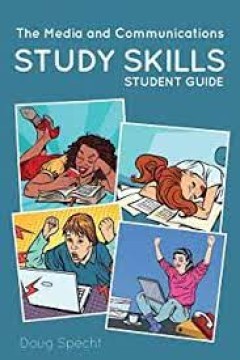
The Media and Communications Study Skills Student Guide
"All the tips, ideas and advice given to, and requested by, MA students in Media and Communications, are brought together in an easy-to-use accessible guide to help students study most effectively. Based upon many years of teaching study skills and hundreds of lecture slides and handouts this introduction covers a range of general and generic skills that the author relates specifically towards …
- Edition
- -
- ISBN/ISSN
- 9781912656592
- Collation
- -
- Series Title
- -
- Call Number
- -

Science Communication Online: Engaging Experts and Publics on the Internet
As science communication has moved online, a range of important new genres have emerged: crowdfunding proposals, blogs, microblogs, databases, and more. Rhetorics of Science Online takes up these genres to explore how scientists are adapting their communications, how publics are increasingly involved in science, and how boundaries between experts and non-experts continue to erode.
- Edition
- -
- ISBN/ISSN
- 9780814213988
- Collation
- -
- Series Title
- -
- Call Number
- -

Pandemic Media: Preliminary Notes toward an Inventory
With its unprecedented scale and consequences the COVID-19 pandemic has generated a variety of new configurations of media. Responding to demands for information, synchronization, regulation, and containment, these “pandemic media” reorder social interactions, spaces, and temporalities, thus contributing to a reconfiguration of media technologies and the cultures and polities with which the…
- Edition
- Ed. 1
- ISBN/ISSN
- 9783957960092, 9783957960085
- Collation
- 380
- Series Title
- Configurations of Film
- Call Number
- 302.03 PAN p
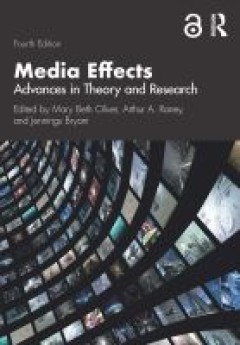
Media Effects
Now in its fourth edition, Media Effects again features essays from some of the finest scholars in the field and serves as a comprehensive reference volume for scholars, teachers, and students. This edition contains both new and updated content that reflects our media-saturated environments, including chapters on social media, video games, mobile communication, and virtual technologies. In reco…
- Edition
- Ed. 1
- ISBN/ISSN
- 9781138590182, 9781138590229
- Collation
- -
- Series Title
- -
- Call Number
- 306.4 MED m

Paradoxes of Interactivity: Perspectives for Media Theory, Human-Computer Int…
Current findings from anthropology, genetics, prehistory, cognitive and neuroscience indicate that human nature is grounded in a co-evolution of tool use, symbolic communication, social interaction and cultural transmission. Digital information technology has recently entered as a new tool in this co-evolution, and will probably have the strongest impact on shaping the human mind in the near fu…
- Edition
- Ed. 1
- ISBN/ISSN
- 9783899428421
- Collation
- 344
- Series Title
- Kultur- und Medientheorie
- Call Number
- 371.3 PAR p
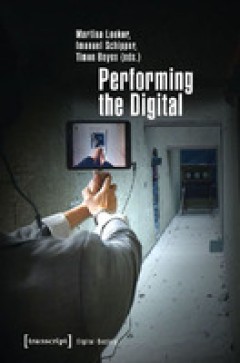
Performing the Digital
How is performativity shaped by digital media – and how do performance practices themselves reflect and alter techno-social configurations? Performing the Digital inquires into the technological terms and conditions of performance and performance studies, and maps and theorizes the registers of performance at work in digital cultures. The contributions range from the performativity of algorit…
- Edition
- -
- ISBN/ISSN
- 9783839433553
- Collation
- -
- Series Title
- -
- Call Number
- -
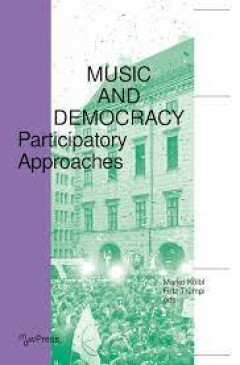
Music and Democracy Participatory Approaches
Music and Democracy explores music as a resource for societal transformation processes. This book provides recent insights into how individuals and groups used and still use music to achieve social, cultural, and political participation and bring about social change. The contributors present outstanding perspectives on the topic: From the promise and myth of democratization through music techno…
- Edition
- -
- ISBN/ISSN
- 9783839456576
- Collation
- -
- Series Title
- -
- Call Number
- -
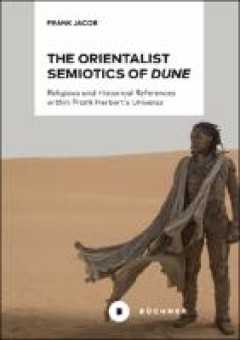
The Orientalist Semiotics of Dune
Frank Herbert’s »Dune« (1965) is considered to be one of the most successful Science Fiction novels of the 20th century. It introduces its readers to a future universe, in which the production of the most valuable resource of the universe – ›spice‹ – is only possible on one vast desert planet called Arrakis. »Dune« offers many different motifs, including a hero that eventually tur…
- Edition
- -
- ISBN/ISSN
- 9783963178511
- Collation
- -
- Series Title
- -
- Call Number
- -
 Computer Science, Information & General Works
Computer Science, Information & General Works  Philosophy & Psychology
Philosophy & Psychology  Religion
Religion  Social Sciences
Social Sciences  Language
Language  Pure Science
Pure Science  Applied Sciences
Applied Sciences  Art & Recreation
Art & Recreation  Literature
Literature  History & Geography
History & Geography